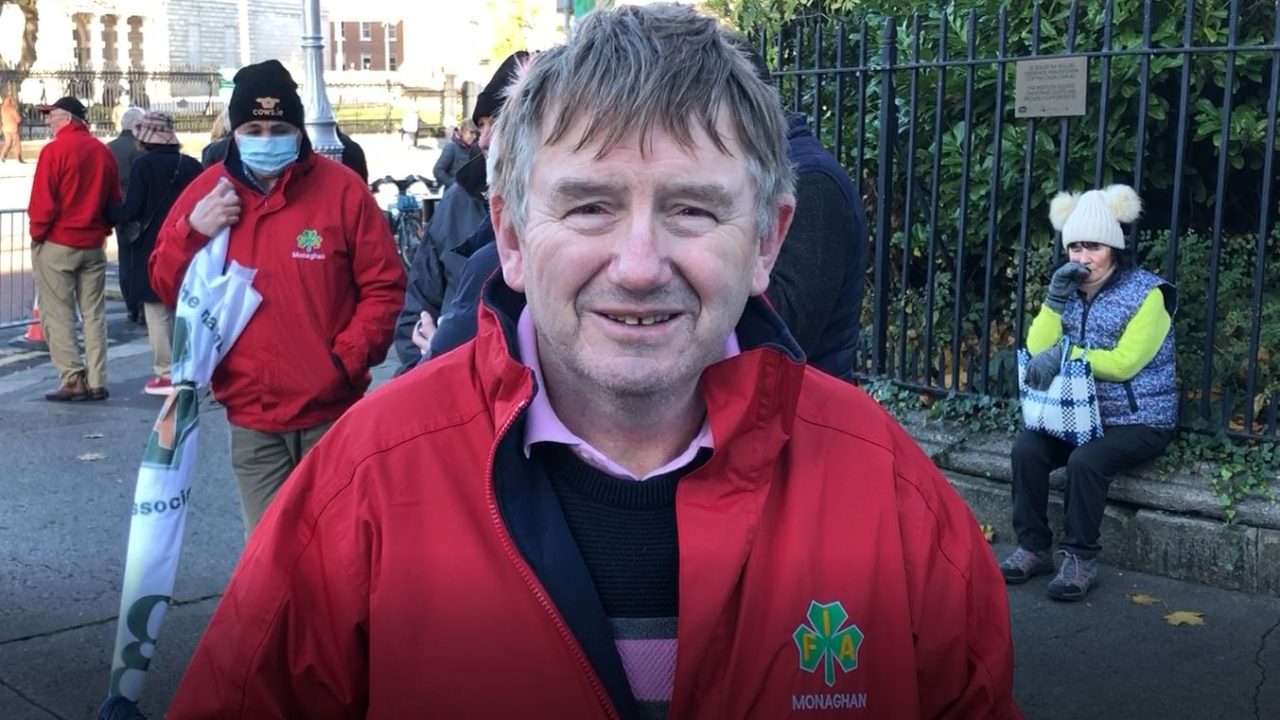“A wartime situation deserves and needs different ideologies than what was needed six months ago,” according to Irish Farmers’ Association (IFA) representative, Frank Brady.
The IFA Ulster/North Leinster regional chair was speaking ahead of a meeting between farming organisations and Minister for Agriculture, Food and the Marine Charlie McConalogue due to take place tomorrow evening (Tuesday, March 8).
During the meeting, the minister is expected to outline a government proposal to ask Irish farmers to grow more crops to offset food supply issues caused by the Russian invasion of Ukraine.
A “rapid response team” is also to be established within the Department of Agriculture, Food and the Marine (DAFM) to “actively monitor” the developing situation.
Following an online meeting of the IFA national officers’ council this morning, Frank Brady said that farmers are willing to help.
“We have to make sure that food security is now the most important thing in the world. Because if we don’t have food, everything else is gone. So, food is the most important thing.
“Irish farmers won’t be found wanting when there’s a time of need. But we have spent the last 20 years undermining farming, undermining food, undermining the cost of food and below cost selling, which the government will not target.
“We have to stop this agenda of undermining good decent people who are trying to do their best for the environment. Farmers are part of the solution, not the problem.”

Brady explained that there is no point in asking a farmer who is specialised in a particular area such as dairy, sheep or beef to grow grain if they have no experience.
“So the farmers will be happy to go out and help but we’re going to need the people that have experience at this. It’s not like in my father’s time when we all had five or six acres of grain and we knew exactly where we were going.”
The IFA chair suggested that farmers could be encouraged to give underutilised land to tillage farmers to grow crops.
However, he warned that farmers will have to be supported given the increase in input costs such as fertiliser, feed and fuel.
“A lot of farmers used to buy their fertiliser from the co-op and then pay for it when the crop was harvested. This year, the co-ops are in the position that they can’t give it because the price has gone up so madly.
“The issue here is that somebody is going to have to help out these people to buy the fertiliser because if we don’t put the fertiliser into the crop there’s no point putting the crop into the ground because it won’t grow.
“There’s no point in expecting the farmer to grow all these extra crops only to find at the end of the day that he’s below cost selling again,” he explained.
Brady also said that livestock farmers can play their role without needing to grow crops.
“What we have to do is encourage farmers to grow what we grow naturally and grow very well – grass. If we can grow grass, then the animals might need less grain and then we might be able to produce more grain for human consumption,” he stated.
“Whatever is decided by government must be realistic and sustainable for farmers, if it has any chance of working,” Brady concluded.
